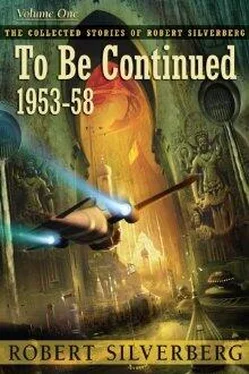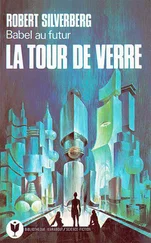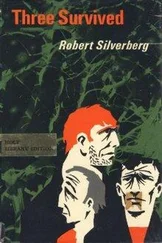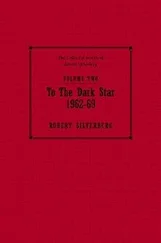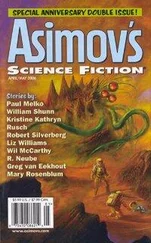Robert Silverberg - There Was an Old Woman
Здесь есть возможность читать онлайн «Robert Silverberg - There Was an Old Woman» весь текст электронной книги совершенно бесплатно (целиком полную версию без сокращений). В некоторых случаях можно слушать аудио, скачать через торрент в формате fb2 и присутствует краткое содержание. Год выпуска: 2012, ISBN: 2012, Издательство: Subterranean Press, Жанр: Фантастика и фэнтези, на английском языке. Описание произведения, (предисловие) а так же отзывы посетителей доступны на портале библиотеки ЛибКат.
- Название:There Was an Old Woman
- Автор:
- Издательство:Subterranean Press
- Жанр:
- Год:2012
- ISBN:978-1-59606-507-9
- Рейтинг книги:3 / 5. Голосов: 1
-
Избранное:Добавить в избранное
- Отзывы:
-
Ваша оценка:
- 60
- 1
- 2
- 3
- 4
- 5
There Was an Old Woman: краткое содержание, описание и аннотация
Предлагаем к чтению аннотацию, описание, краткое содержание или предисловие (зависит от того, что написал сам автор книги «There Was an Old Woman»). Если вы не нашли необходимую информацию о книге — напишите в комментариях, мы постараемся отыскать её.
There Was an Old Woman — читать онлайн бесплатно полную книгу (весь текст) целиком
Ниже представлен текст книги, разбитый по страницам. Система сохранения места последней прочитанной страницы, позволяет с удобством читать онлайн бесплатно книгу «There Was an Old Woman», без необходимости каждый раз заново искать на чём Вы остановились. Поставьте закладку, и сможете в любой момент перейти на страницу, на которой закончили чтение.
Интервал:
Закладка:
There Was an Old Woman
by Robert Silverberg
Since I was raised from earliest infancy to undertake the historian’s calling, and since it is now certain that I shall never claim that profession as my own, it seems fitting that I perform my first and last act as a historian.
I shall write the history of that strange and unique woman, the mother of my thirty brothers and myself, Miss Donna Mitchell.
She was a person of extraordinary strength and vision, our mother. I remember her vividly, seeing her with all her sons gathered round her in our secluded Wisconsin farmhouse on the first night of summer, after we had returned to her from every part of the country for our summer’s vacation. One-and-thirty strapping sons, each one of us six feet one inch tall, with a shock of unruly yellow hair and keen, clear blue eyes, each one of us healthy, strong, well nourished, each one of us twenty-one years and fourteen days old—one-and-thirty identical brothers.
Oh, there were differences between us, but only we and she could perceive them. To outsiders, we were identical; which was why, to outsiders, we took care never to appear together in groups. We ourselves knew the differences, for we had lived with them so long.
I knew my brother Leonard’s cheekmole—the right cheek it was, setting him off from Jonas, whose left cheek was marked with a flyspeck. l knew the faint tilt of Peter’s chin, the slight oversharpness of Dewey’s nose, the florid tint of Donald’s skin. I recognized Paul by his pendulous earlobes, Charles by his squint, Noel by the puckering of his lower lip. David had a blue-stubbled face, Mark flaring nostrils, Claude thick brows.
Yes, there were differences. We rarely confused one with another. It was second nature for me to distinguish Edward from Albert, George from Philip, Frederick from Stephen. And Mother never confused us.
She was a regal woman, nearly six feet in height, who even in middle age had retained straightness of posture and majesty of bearing. Her eyes, like ours, were blue; her hair, she told us, had once been golden like ours. Her voice was a deep, mellow contralto; rich, firm, commanding, the voice of a strong woman. She had been professor of biochemistry at some Eastern university (she never told us which one, hating its name so) and we all knew by heart the story of her bitter life and of our own strange birth.
“I had a theory,” she would say. “It wasn’t an orthodox theory, and it made people angry to think about it, so of course they threw me out. But I didn’t care. In many ways that was the most fortunate day of my life.”
“Tell us about it, Mother,” Philip would invariably ask. He was destined to be a playwright; he enjoyed the repetition of the story whenever we were together.
She said:
“I had a theory. l believed that environment controlled personality, that given the same set of healthy genes any number of different adults could be shaped from the raw material. I had a plan for testing it—but when I told them, they discharged me. Luckily, I had married a wealthy if superficial-minded executive, who had suffered a fatal coronary attack the year before. I was independently wealthy, thanks to him, and free to pursue independent research, thanks to my university discharge. So I came to Wisconsin and began my great project.”
We knew the rest of the story by heart, as a sort of litany.
We knew how she had bought a huge, rambling farm in the flat green country of central Wisconsin, a farm far from prying eyes. Then, how on a hot summer afternoon she had gone forth to the farm land nearby, and found a field hand, tall and brawny, and to his great surprise seduced him in the field where he worked.
And then the story of that single miraculous zygote, which our mother had extracted from her body and carefully nurtured in special nutrient tanks, irradiating it and freezing it and irritating it and dosing it with hormones until, exasperated, it subdivided into thirty-two, each one of which developed independently into a complete embryo.
Embryo grew into foetus, and foetus into child, in Mother’s ingenious artificial wombs. One of the thirty-two died before birth of accidental narcosis; the remainder survived, thirty-one identical males sprung from the same egg, to become us.
With the formidable energy that typified her, Mother singlehandedly nursed thirty-one baby boys; we thrived, we grew. And then the most crucial stage of the experiment began. We were differentiated at the age of eighteen months, each given his own room, his own particular toys, his own special books later on. Each of us was slated for a different profession. It was the ultimate proof of her theory. Genetically identical, physically identical except for the minor changes time had worked on our individual bodies, we would nevertheless seek out different fields of employment.
She worked out the assignments at random, she said. Philip was to be a playwright, Noel a novelist, Donald a doctor. Astronomy was Allan’s goal, Barry’s, biology, Albert’s the stage. George was to be a concert pianist, Claude a composer, Leonard a member of the bar, Dewey a dentist. Mark was to be an athlete; David, a diplomat. Journalism waited for Jonas, poetry for Peter, painting for Paul.
Edward would become an engineer, Saul a soldier, Charles a statesman; Stephen would go to sea. Martin was aimed for chemistry, Raymond for physics, James for high finance. Ronald would be a librarian, Robert a bookkeeper, John a priest, Douglas a teacher. Anthony was to be a literary critic, William an architect, Frederick an airplane pilot. For Richard was reserved a life of crime; as for myself, Harold, I was to devote my energies to the study and writing of history.
This was my mother’s plan. Let me tell of my own childhood and adolescence, to illustrate its workings.
My first recollections are of books. I had a room on the second floor of our big house. Martin’s room was to my left, and in later years I would regret it, for the air was always heavy with the stink of his chemical experiments. To my right was Noel, whose precocious typewriter sometimes pounded all night as he worked on his endless first novel.
But those manifestations came later. I remember waking one morning to find that during the night a bookcase had been placed in my room, and in it a single book—Hendrik Willem van Loon’s The Story of Mankind. I was four, almost five, then; thanks to Mother’s intensive training we were all capable readers by that age, and I puzzled over the big type, learning of the exploits of Charlemagne and Richard the Lionhearted and staring at the squiggly scratches that were van Loon’s illustrations.
Other books followed, in years to come. H. G. Wells’s Outline of History, which fascinated and repelled me at the same time. Toynbee, in the Somervell abridgement, and later, when I had entered adolescence, the complete and unabridged edition. Churchill, and his flowing periods and ringing prose. Sandburg’s poetic and massive life of Lincoln; Wedgwood on the Thirty Years’ War; Will Durant, in six or seven blocklike volumes.
I read these books, and where I did not understand I read on anyway, knowing I would come back to that page in some year to come and bring new understanding to it. Mother helped, and guided, and chivvied. A sense of the panorama of man’s vast achievement sprang up in me. To join the roll of mankind’s chroniclers seemed the only possible end for my existence.
Each summer from my fourteenth to my seventeenth, I traveled—alone, of course, since Mother wanted to build self-reliance in us. I visited the great historical places of the United States: Washington, DC, Mount Vernon, Williamsburg, Bull Run, Gettysburg. A sense of the past rose in me.
Читать дальшеИнтервал:
Закладка:
Похожие книги на «There Was an Old Woman»
Представляем Вашему вниманию похожие книги на «There Was an Old Woman» списком для выбора. Мы отобрали схожую по названию и смыслу литературу в надежде предоставить читателям больше вариантов отыскать новые, интересные, ещё непрочитанные произведения.
Обсуждение, отзывы о книге «There Was an Old Woman» и просто собственные мнения читателей. Оставьте ваши комментарии, напишите, что Вы думаете о произведении, его смысле или главных героях. Укажите что конкретно понравилось, а что нет, и почему Вы так считаете.
